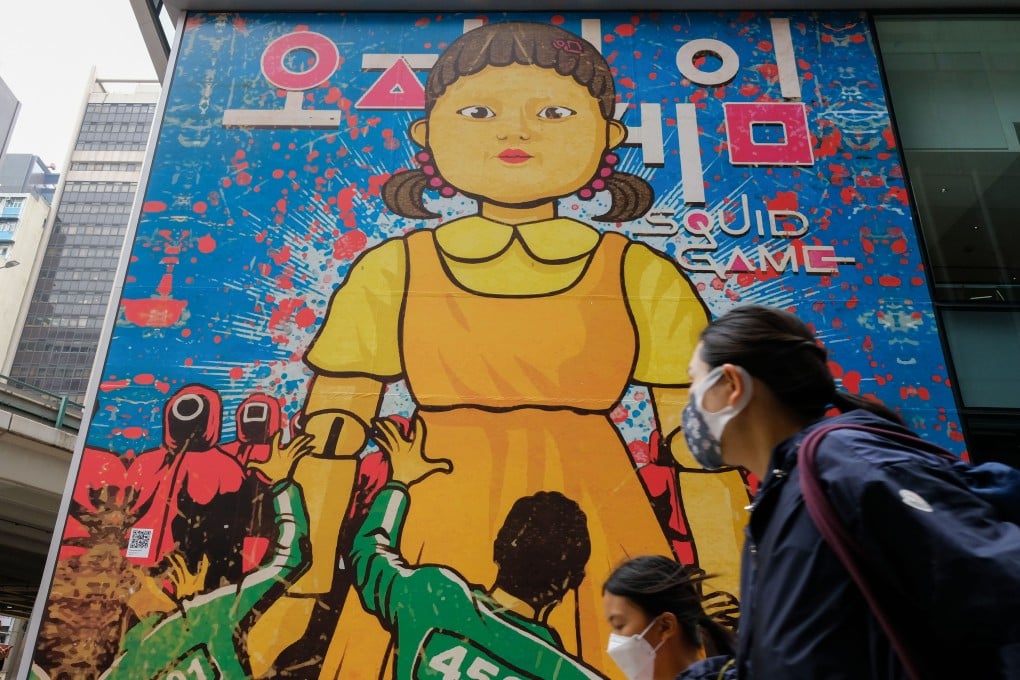Letters | Squid Game asks big questions about capitalism and humanity’s dark side
- Readers discuss the themes in Korean pop culture’s latest success, the role of housing in Hong Kong’s stability and how to head off hyperinflation

This fictional story follows a bunch of cash-strapped debtors who, at the invitation of an enigmatic organisation, partake in a competition where they play children’s games to win the ultimate prize – money to pay off their debts and lead a wealthy life. The only catch is they need to survive long enough by outlasting their opponents. A familiar plot, isn’t it? What’s the appeal then?
First, the show exposes the underbelly of South Korea, a capitalist society where income inequality and the wealth gap have left many citizens feeling disenfranchised and discouraged. The divide between the haves and have-nots depicted is so raw and real that it strikes a chord with viewers.
Second, the drama boldly portrays the dark side of human nature. The participants live on the fringes of society and are always willing to take a gamble, both literally and figuratively. With the stakes so high, they are still willing to increase their bets, which speaks volumes about their greed but also their irrationality arising from the need to survive, sometimes at the expense of others.
There is hardly any trace of morality in them if a life-threatening situation arises during the games. That raises the million-dollar question we often ask in the real world: can humanity resist the temptation to commit atrocities, or will the dark side of human nature prevail in the face of adversity?
